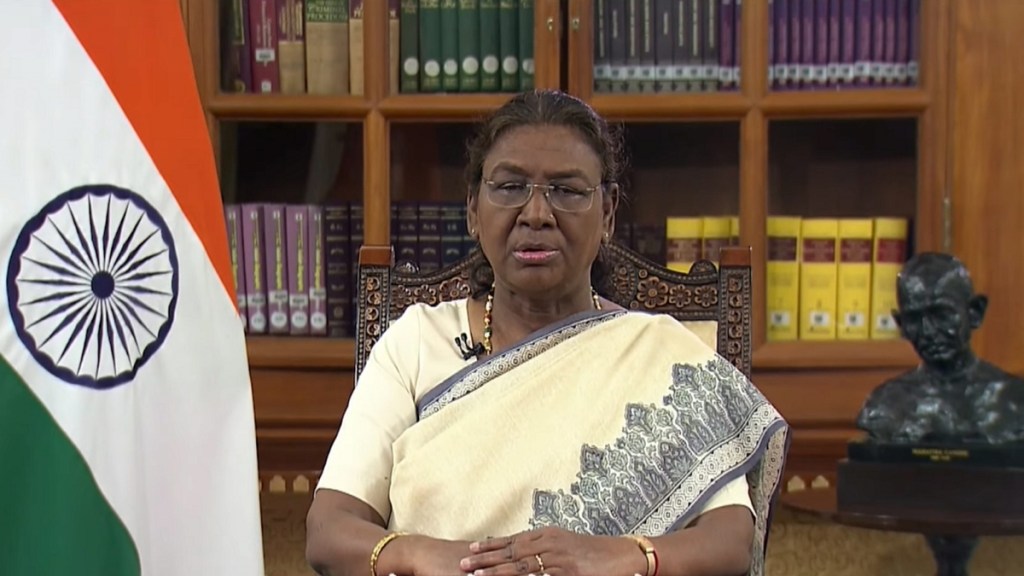President Droupadi Murmu announced Wednesday that India has laid the groundwork for a new era of economic reforms aimed at advancing the country to developed nation status. In her address on the eve of India’s 78th Independence Day, Murmu highlighted India’s rapid economic growth, noting that the country has become the fastest-growing major economy with an average annual GDP growth rate of 8% from 2021 to 2024.
Murmu asserted that India has risen to become the fifth-largest economy globally and is nearing entry into the top three. She attributed this progress to the efforts of workers and farmers, visionary leadership, and strategic planning.
The President outlined the government’s goal of transforming India into a ‘Viksit Bharat’ (developed nation) by 2047, marking the centenary of Independence.
President Murmu pointed to the government’s focus on infrastructure development, the adoption of cutting-edge technologies, such as artificial intelligence and semiconductors, and a robust banking and financial sector as key factors that make India an increasingly attractive destination for investment.
“All these elements have set the stage for the next generation of economic reforms and growth that will propel India among the developed nations,” she stated.
She also assured continued support for those still facing economic hardships, highlighting initiatives like the PM Garib Kalyan Anna Yojana, which provides free rations to about 800 million people.
The President further acknowledged the crucial role of farmers in achieving agricultural self-sufficiency and cited significant infrastructure improvements, including expanded roads, highways, railways, and ports, as essential to the nation’s development.
President Murmu on education
President Murmu said that the new National Education Policy (NEP) is already showing results in cultivating young minds and blending traditional and contemporary knowledge. She said that the ongoing “Amrit Kaal”—a 25-year period leading to the centenary of Independence—will be shaped by today’s youth.
Murmu highlighted the NEP’s role in this transformation, noting that it focuses on nurturing youth potential and modernising education. She also pointed to government initiatives aimed at providing skilling, employment, and other opportunities. The Prime Minister’s five-scheme package is set to benefit 4.1 crore youth over five years, while a new program will offer internships to one crore youth in leading companies.
The NEP, launched in 2020, updates the previous National Policy on Education from 1986. It extends the Right to Education (RTE) Act to all schools from pre-school through Class 12, and redefines the schooling structure to a 5+3+3+4 model. This new framework includes a foundation stage for ages 3-8, preparatory schooling for ages 8-11, middle school for ages 11-14, and secondary education for ages 14-18.

